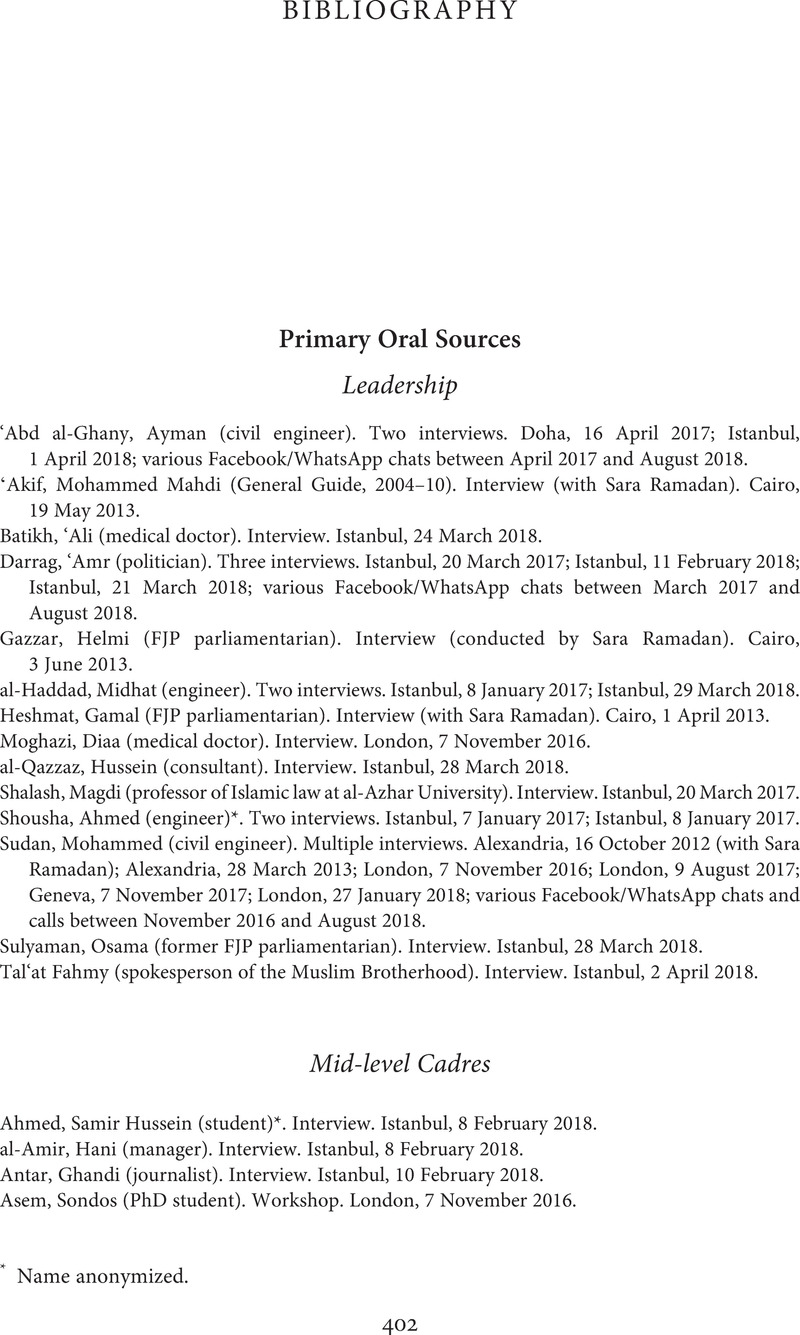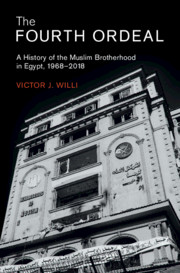Book contents
- The Fourth Ordeal
- Cambridge Middle East Studies
- The Fourth Ordeal
- Copyright page
- Dedication
- Contents
- Plates, Figures and Tables
- Acknowledgements
- Note on Transliterations and References
- Note on Sources
- Chronology of Events
- Dramatis Personae
- Abbreviations
- Prologue
- Introduction
- 1 The Society of the Muslim Brothers
- 2 The Second Founding (1968–1981)
- 3 The Rise of the Vanguard (1981–1991)
- 4 Brotherhood Incorporated (1991–2001)
- 5 Struggle for Leadership (2001–2011)
- 6 Revolution, Rise and Fall (2011–2013)
- 7 The Beginning of the Fourth Ordeal (2013–2018)
- Conclusion
- Epilogue
- Glossary
- Bibliography
- Index
- Books in the Series
- Plate Section
- Plate Section
- References
Bibliography
Published online by Cambridge University Press: 02 February 2021
- The Fourth Ordeal
- Cambridge Middle East Studies
- The Fourth Ordeal
- Copyright page
- Dedication
- Contents
- Plates, Figures and Tables
- Acknowledgements
- Note on Transliterations and References
- Note on Sources
- Chronology of Events
- Dramatis Personae
- Abbreviations
- Prologue
- Introduction
- 1 The Society of the Muslim Brothers
- 2 The Second Founding (1968–1981)
- 3 The Rise of the Vanguard (1981–1991)
- 4 Brotherhood Incorporated (1991–2001)
- 5 Struggle for Leadership (2001–2011)
- 6 Revolution, Rise and Fall (2011–2013)
- 7 The Beginning of the Fourth Ordeal (2013–2018)
- Conclusion
- Epilogue
- Glossary
- Bibliography
- Index
- Books in the Series
- Plate Section
- Plate Section
- References
Summary

- Type
- Chapter
- Information
- The Fourth OrdealA History of the Muslim Brotherhood in Egypt, 1968–2018, pp. 402 - 434Publisher: Cambridge University PressPrint publication year: 2021

